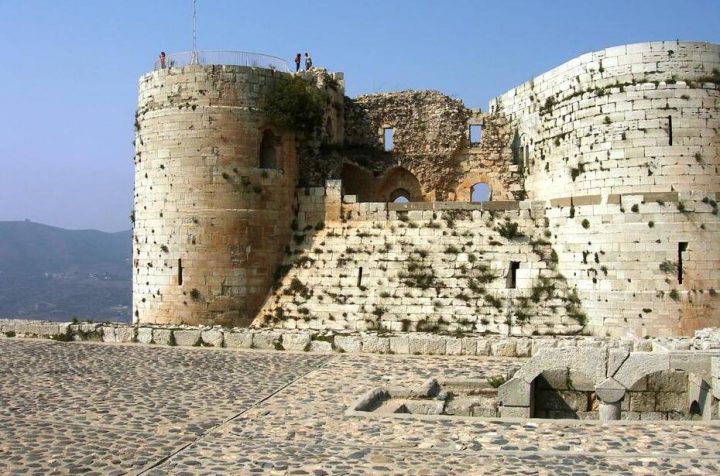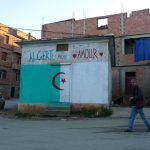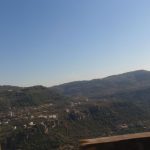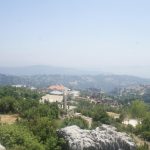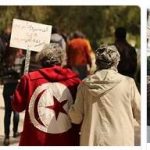Due to the freedom of expression and assembly guaranteed in the constitution in Article 13, Lebanese civil society is very active compared to other Arab states. According to the Lebanese Ministry of the Interior, more than 2,300 civil society associations are registered and active in various areas of society: religious organizations, human rights and women’s organizations, trade unions, professional, environmental, business and industrial associations. The right to found an association is highly valued in Lebanon, the NGO Law is considered one of the best in the Arab world. The registration process is simple and many organizations operate without registering. Laws would hardly be enforced anyway. In view of the Syrian crisis and the large sums of aid that are coming into the country to take care of Syrians who have fled, the government is making efforts to tighten controls. The government accuses the NGOs of lacking transparency and poor quality of their work. The UNDP provides an overview of the NGOs operating in Lebanon.
According to militarynous, Lebanon’s civil society is comparatively lively and has a fairly high level of organization. There is a robust network of autonomous, self-organized groups, associations and organizations as well as a solid level of trust within the population. The organizations very often take on state tasks such as social affairs and education.
Most of these associations can be assigned to one of the 19 officially recognized religious communities. Here, Lebanese civil society is divided into two factions, a political faction with a western character and a traditional one, which is characterized by membership of clans and clientelist networks.
The trade unions and professional associations are particularly quick-witted because they have a function that goes far beyond their usual economic and labor-political role. This is because they are non-denominational and not dependent on the ruling elites and thus primarily represent the interests of their members.
For the first time in Lebanon’s history, Lebanese civil society has managed to carry out interdenominational actions. The organization Li Haqqi called on October 17, 2019 to block the streets in response to the tax increases that had been decided. Unexpectedly, hundreds of thousands of people answered the call. They protest against corruption and the rule of the political elite. They are calling for the resignation of the entire leadership: the state president, the head of government and his cabinet, the president of parliament and the representatives of the people. Women stand at the protests in Lebanon and in the forefront. They play a leading role in the protests. Some of them sit at the head of the demonstration marches and vote on the demands via megaphones. The building contractor Hariri actually resigned on October 29, 2019 under pressure from the protesters. A re-appointment of Hariri has failed after several attempts. Hariri was unable to get a majority for the formation of an expert government, as the protesters are demanding, so on December 19, 2019, President Aoun tasked former Education Minister Hassan Diab with the formation of a new government. Since Diab does not have the support of the country’s most important Sunni leaders, many observers believe that he will fail to form a new government.
Civil society between “revolution” and denominationalism
Confessinalism in Lebanon serves the ruling political elite as an instrument for dividing and controlling society. As a result, the denominational system is based on the fact that people from different regions and religions distrust each other. Although the Lebanese Constitution guarantees the fundamental freedoms and equality of all citizens, fear of the other group has been a main characteristic of Lebanese society at least since the outbreak of the civil war in 1975. The rulers apparently had no particular interest in reducing this fear. Rather, it was useful to them to expand their own position of power. The more insecure the elite, the greater their need to protect themselves from enemy images in the other denomination, which leads to a narrowing of the social scope for action. The consequence is the simultaneity of political stagnation and social frustration. The “garbage crisis” in 2015 already testified to the inability of the political system to cope with basic state tasks.You stinks ”campaign and called for not only a solution to the garbage problem, but an end to corruption and mismanagement. The demonstrators were intimidated at the time. The pressure of the street ensured that the deeply divided political ruling elite moved together. Instead of taking action against corruption and nepotism, the demonstrators were criminalized and declared traitors who were controlled and financed from abroad. It was probably overlooked that large parts of the political leadership are obviously financed and delegated from abroad.
Although the announcement by the Lebanese government on October 17th that it would introduce a tax on WhatsApp was the trigger for a massive popular uprising, Lebanon has been in a deep political crisis for a long time, which can be attributed to the fact that each denominational group has its own parties and maintains its own social patronage structures. The state and its institutions become like prey distributed among the rulers, as a result of which he fails to give especially the youth a perspective in their own country. This youth is now angry, they are turning away from the system and calling for its radical abolition across all denominations. Under the slogan “Everyone means everyone” they describe the country’s politicians as “thieves” and “criminals” who are brought to justice and have to return what has been captured to society. This anger is causing the Lebanese civil society to move closer together, but so far it has not been able to formulate a clear vision of how it wants to overcome the current system. No political movement has emerged from the uprising that can really pose a threat to the establishment.
One of the greatest challenges facing civil society is overcoming sectarianism and creating an interdenominational narrative about the new Lebanon. It is faced with a mammoth task, if you consider that since the emergence of Lebanon, the individual groups have gained their collective identity to a significant extent by deliberately delimiting them from all other groups. The ruling elite always knew how to use this and play off the groups against each other. The question now arises as to the political maturity of civil society and its ability to have an integrative effect. In addition, religious dignitaries, e.g. sheikhs or bishops, are also judges in Lebanon. This amalgamation of religion and state makes it harder for civil society to force reforms.denominational disputes can result.

